INTRODUCING A.L.A.R.M. (A LEARNING & RESPONSE MATRIX)
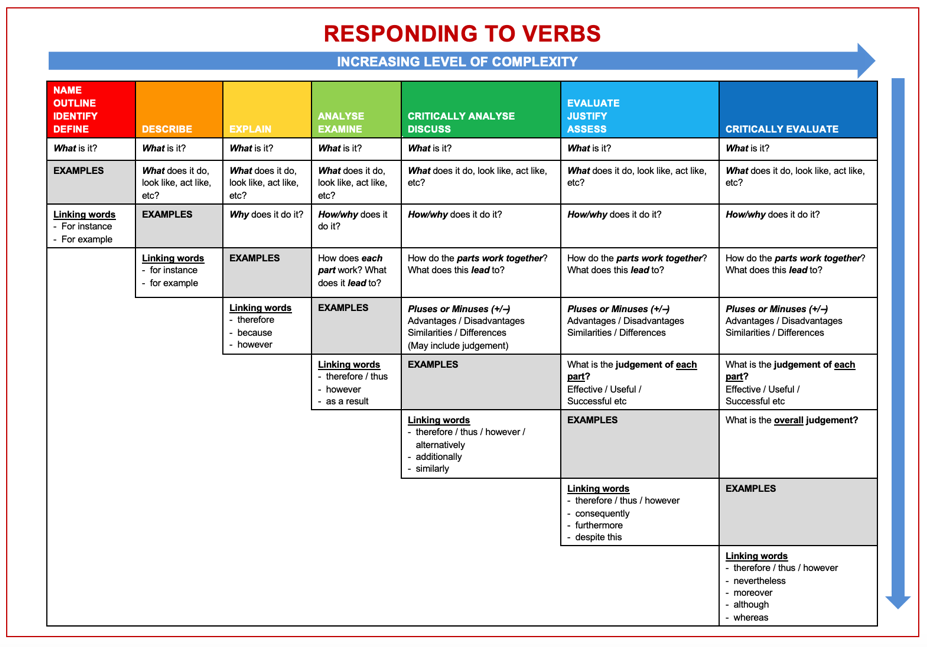
The ALARM Matrix supports students with their written responses. It helps students answer questions based on the NESA key words. As seen above, key words that require a simple answer are on the left and words that require more critical thinking are on the right. The above poster is being placed in all classrooms across the College. ALARM is the intellectual property of Max Woods. He has generously made it publicly available.
STUDY SKILLS TIP – TEST TAKING TECHNIQUES
With students across the College sitting tests over the next few weeks, following are some techniques to support students with their preparation.
A few days before the test or exam:
- Plan out how much time you should spend on each section of the test.
- Look after yourself – exercise and drink lots of water, eat healthy food and maintain decent sleep.
- Purchase any equipment you may need e.g. extra calculator batteries, pens, rulers etc.
- Ensure you know what equipment is allowed in the test or exam.
- Focus on reviewing the key points, perhaps a condensed version of your summaries.
- Check the timetable to ensure you have a clear picture of when each exam is being held.
The night before the test or exam:
- Pack your bag with everything you will need for the next day, ensuring you have all necessary equipment.
- Don’t go to bed too late – you need to make sure your brain is fresh and alert.
- Don’t ring friends and discuss your preparation or the examination.
- Just before you go to sleep, look through your notes briefly.
The morning of the test or exam:
- Visualise success.
- Review your notes.
- Eat breakfast.
At the start of the test or exam:
- Read the instructions carefully.
- Look through the whole paper.
- Quickly jot down anything you might forget.
During the test or exam:
- Have a plan of attack as to which questions you will do first.
- Take note of how many marks each question is worth.
- Read the questions carefully before answering.
- Brainstorm ideas before writing essays.
- Cross mistakes out neatly instead of scribbling or using liquid paper.
- If you have a mental blank leave the question and come back to it later.
- Set your work out clearly, write as neatly as possible and do large diagrams.
- Show all working and space your work out.
- When you finish go back and check all of your answers – don’t leave anything out.
For further information on test taking techniques, families can access the Study Skills Handbook.
Link: www.studyskillshandbook.com.au
Username: edmundrice
Password: 13achieve
STUDENT FOCUS GROUPS
A number of students across Year Groups are currently participating in focus group meetings where they have the opportunity to talk about and provide feedback on their learning experiences at the College. The College values student voice and this provides students the opportunity to share their needs and understandings as well as suggest modifications and enhancements to learning experiences delivered at the College. The feedback also provides teachers with a better understanding of students’ needs enabling them to enhance their learning and teaching programs.
QUICKSMART NUMERACY
The College has implemented the Quicksmart Numeracy Program. Quicksmart supports students who require extra help in developing their numeracy skills. This year, we have a group of Year 8 students involved in the program. The program focuses on understanding and recall of basic number facts, performance of elementary calculations and problem solving skills. The aim is to develop students’ automaticity and conceptual understanding. The College is confident that QuickStart will support our students in improving their numeracy skills.
CATCH UP WITH TOP ACHIEVERS 2020 HSC AND BEYOND
The Narandha Learning Centre has purchased the reference “Catch up With Top Achievers 2020 HSC and Beyond”, edited by Adam Ma and Fionn Parker. The reference contains articles written by the best performing students in the state and answers key questions such as ‘What were the strategies for success?’ Students are able to borrow this reference from the Narandha Learning Centre.
PROBLEM OF THE FORTNIGHT
Three people, each having a number of dollars, found a wallet containing $23. The first person said to the second, ”If I take this wallet, I will have twice as much as you.” The second said to the third, “If I take this wallet, I will have three times as much as you.” The third person said to the first, “If I take this wallet, I will have four times as much as you.” How many dollars did each person have?
SOLUTION TO THE LAST PROBLEM:
The fountain is 32 metres from the base of the lower tower and 18 metres from the base of the taller tower. To answer the question, an application of Pythagoras’ Theorem can be used.
WORDS OF THE FORTNIGHT:
Following is a link to spelling lists and rules contained in 2021 newsletters. Click on the link and ask your son(s) to spell these words and use them in a context. https://bit.ly/3tTMKQk
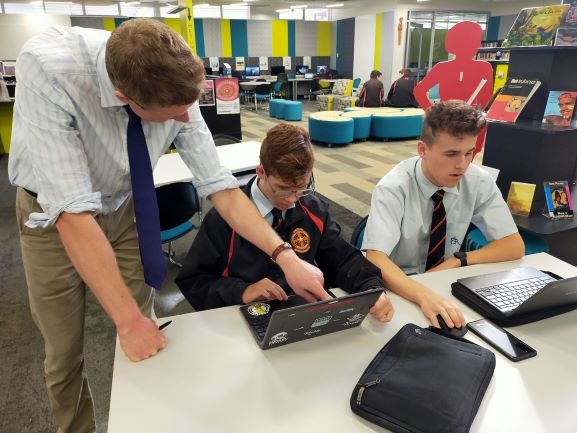 |
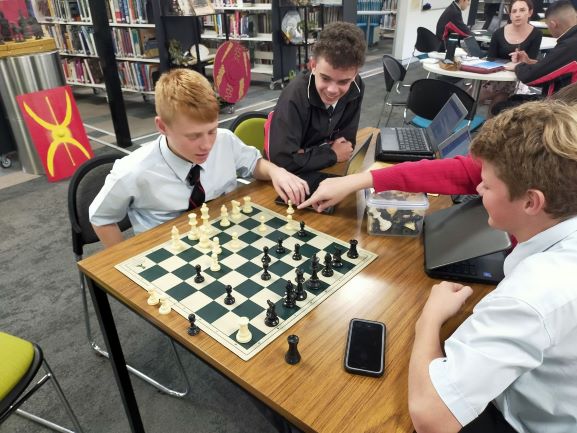 |
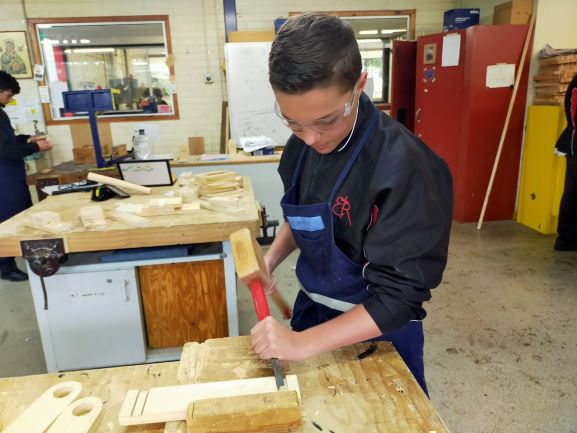 |
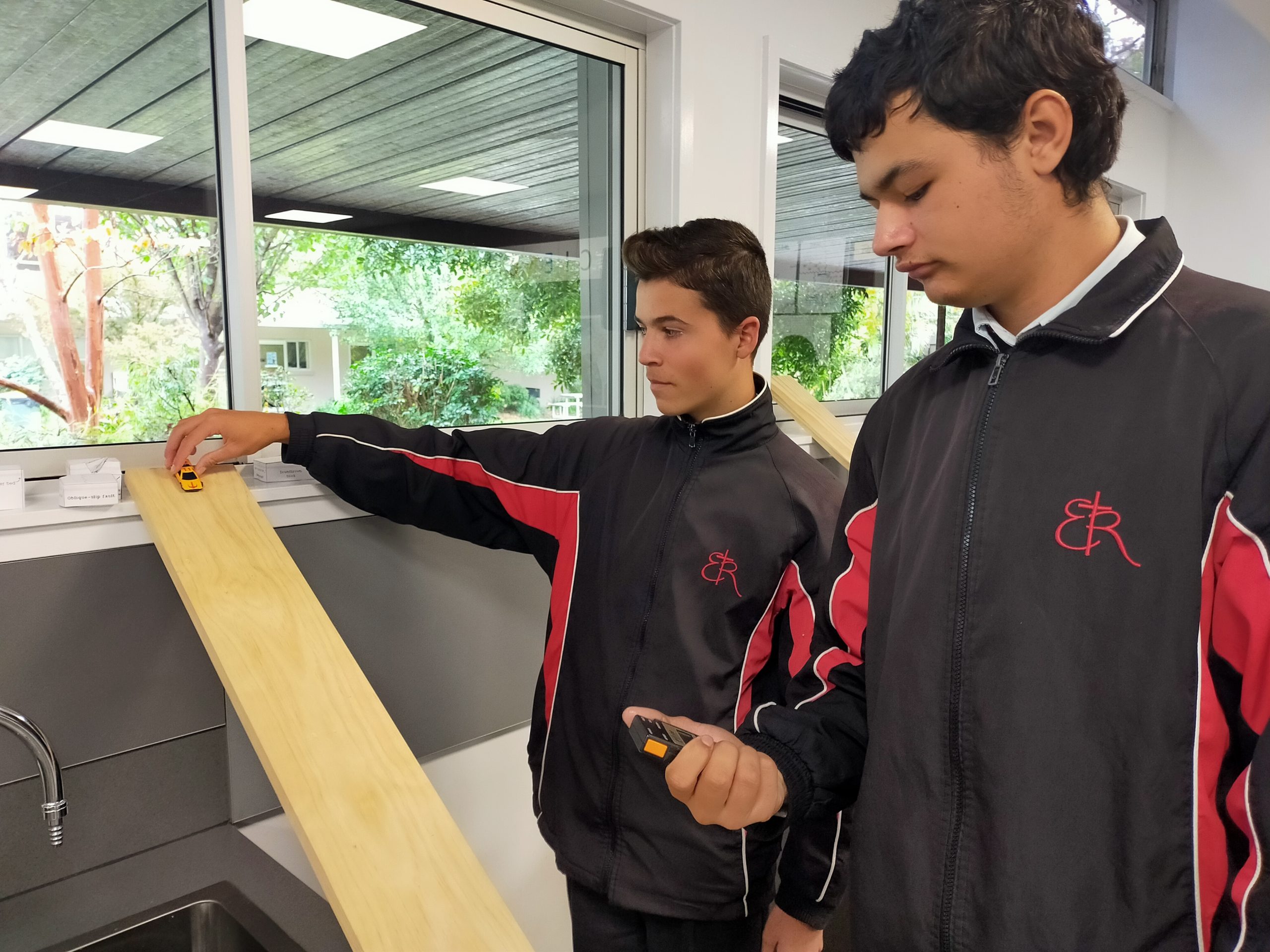 |
 |
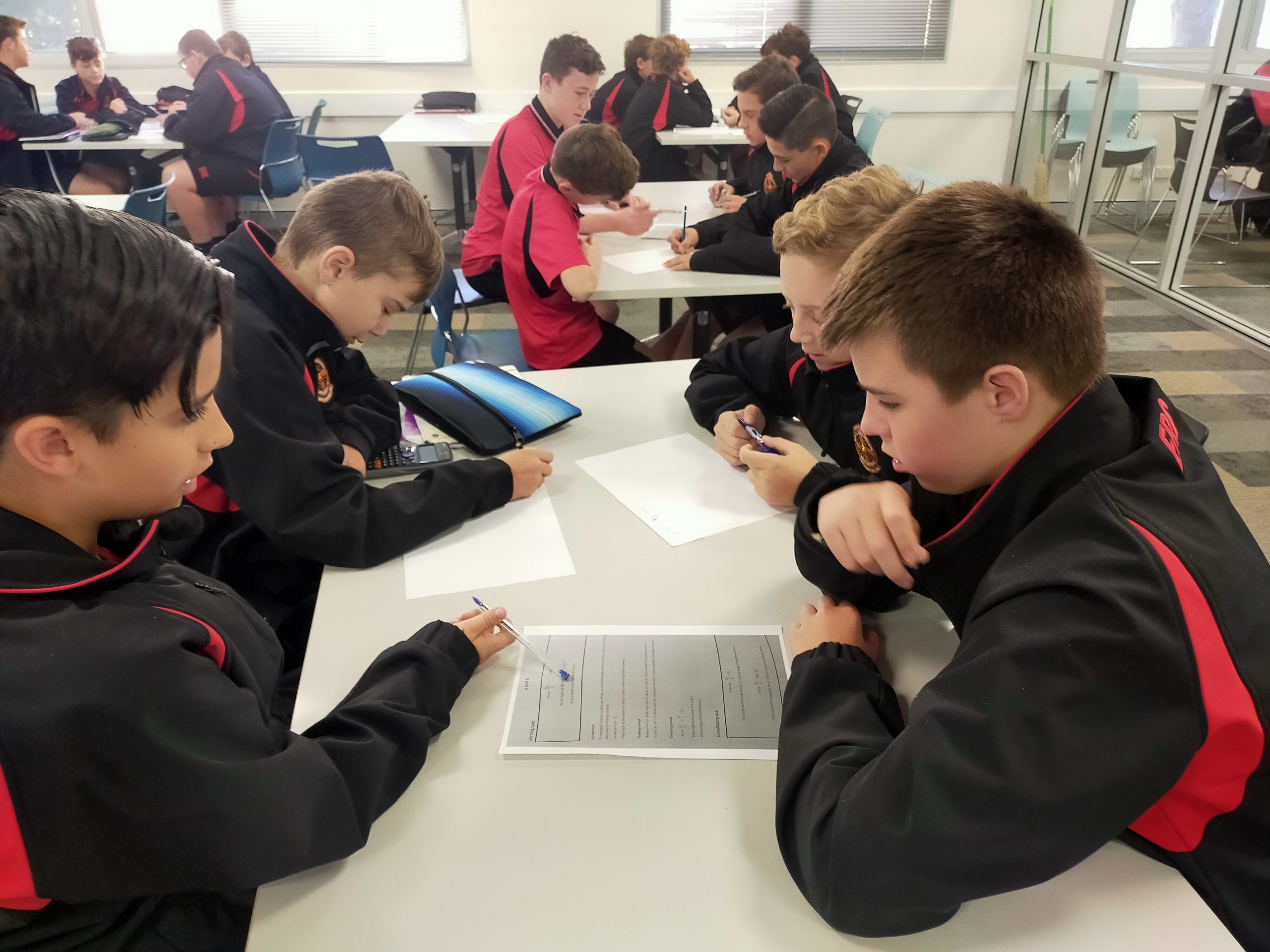 |
Mr Sozio
Director of Learning and Teaching
